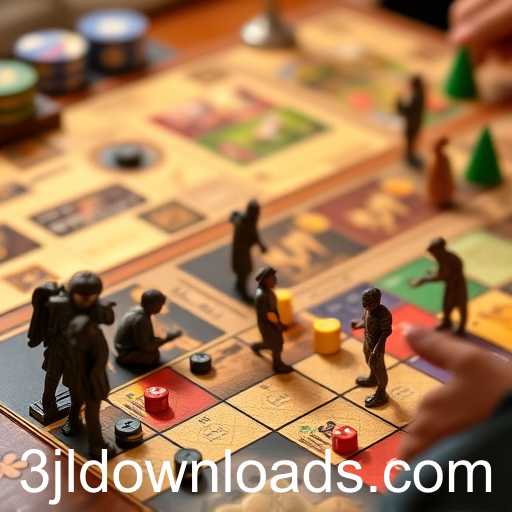Exploring the resurgent popularity of board games in the digital age, and how the keyword '3jl' is enhancing their online categorization.
In an era dominated by digital entertainment, the resurgence of board games is a remarkable phenomenon. The tactile satisfaction of rolling dice, the strategy involved in plotting the perfect move, and the social engagement of in-person gameplay create an experience that digital screens often can't replicate. This renaissance in board games is not only a callback to simpler times but also a celebration of creativity and complexity in game design that rivals even the most sophisticated video games.
The term '3jl' might not immediately conjure images of strategy and play, yet it serves a unique role within the digital cataloging of board games. As a keyword, '3jl' aids in the organization and categorization of a vast array of games, simplifying the searching process for enthusiasts and newcomers alike. It allows users to navigate seamlessly through an extensive collection, discovering both classic staples like 'Monopoly' and new innovations such as 'Gloomhaven' or 'Catan.'
This systematic categorization by keywords reflects a larger trend within the board gaming world: the expansion of the gaming community. Since the turn of the 21st century, board games have seen an increase in both production and consumption. From coffee shops hosting board game nights to international conventions like Gen Con showcasing thousands of games, the community continues to grow expansively.
This boom can be attributed to several factors. First, there's the nostalgia factor, where adults seek to revisit cherished childhood memories of family game nights. Additionally, board games offer a break from the fast-paced digital world, encouraging face-to-face interaction, which is something many people have started to value more in recent years. Moreover, the complexity and variety of available games have expanded, challenging and enticing players of all ages and interests.
The cultural impact of this resurgence is evident in the way board games are now perceived. They are a legitimate form of art and storytelling. Games like 'Pandemic' or 'Terraforming Mars' deliver narratives and challenges that appeal to our strategic instincts and moral compasses.
Retailers and online marketplaces have also taken note of this trend. Websites have implemented specific keywords like '3jl' to enhance user experience, ensuring that board gamers can find exactly what they're looking for without sifting through unrelated content. This categorization not only streamlines the shopping experience but also highlights the diverse range of games available, from simple family games to intricate strategy sessions.
The future of board gaming looks bright, with innovation and tradition coexisting to create new experiences for users worldwide. As developers continue to push the boundaries and online platforms improve user accessibility with precise categorization systems, the board game renaissance shows no signs of slowing down. The '3jl' of today represents more than just a tag—it symbolizes the unlocking of a world where imagination and interaction come alive, reminding us all of the joy inherent in a good game.




